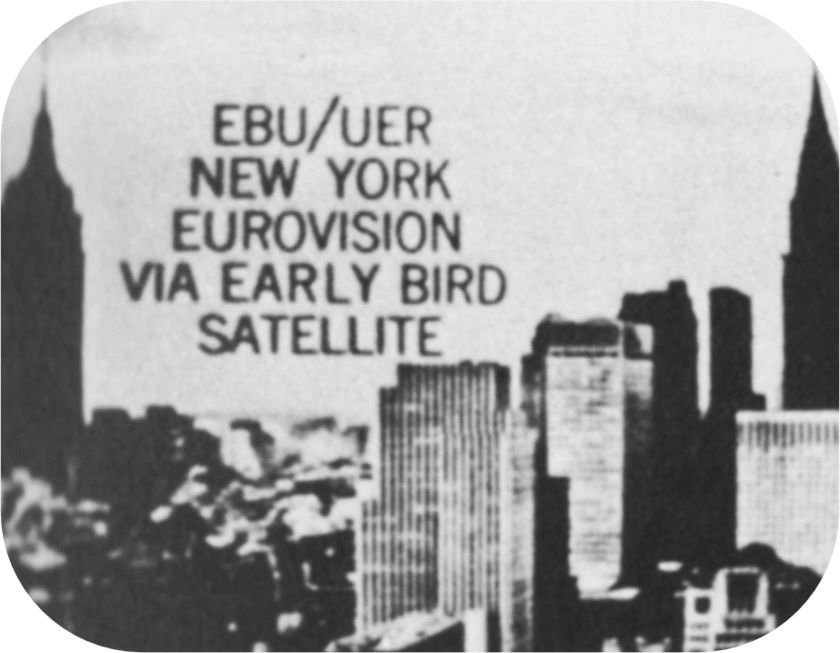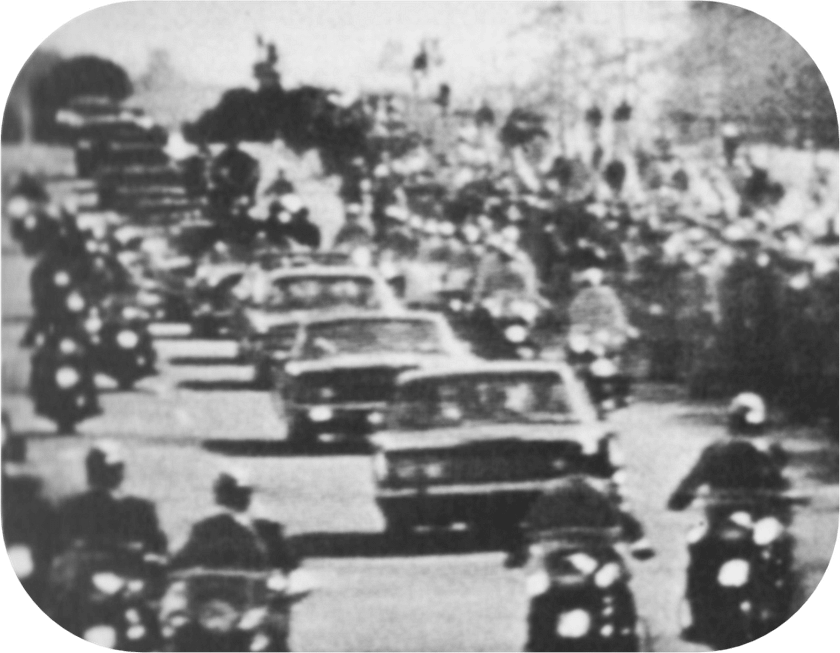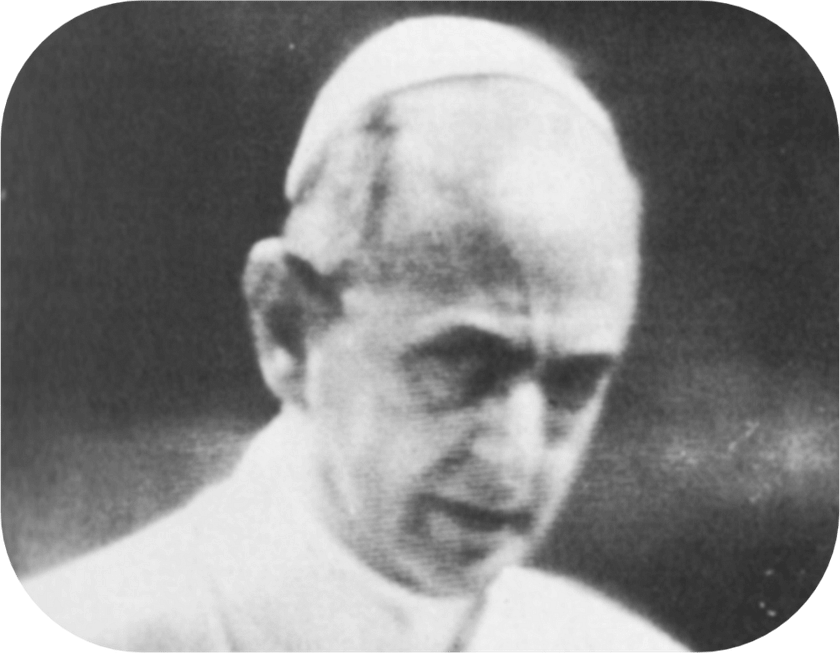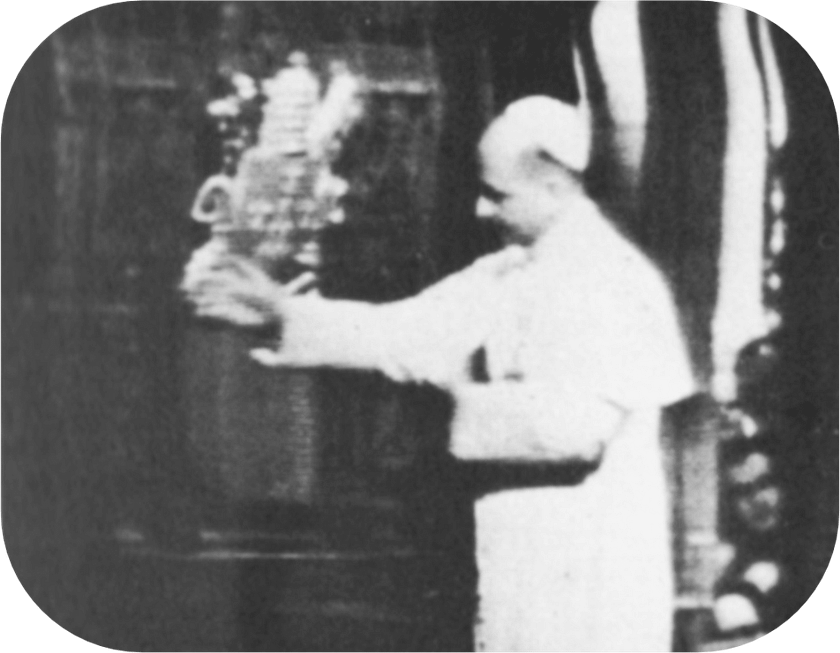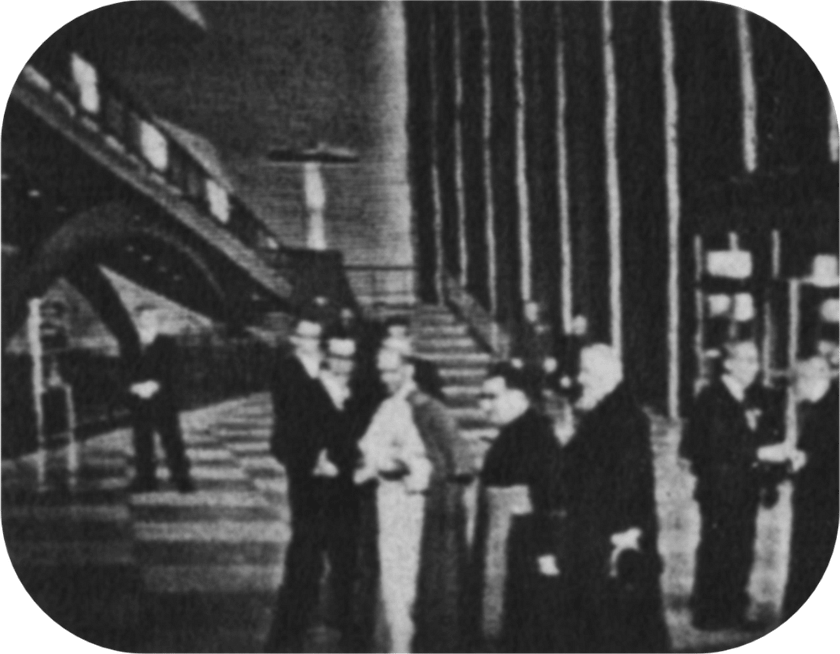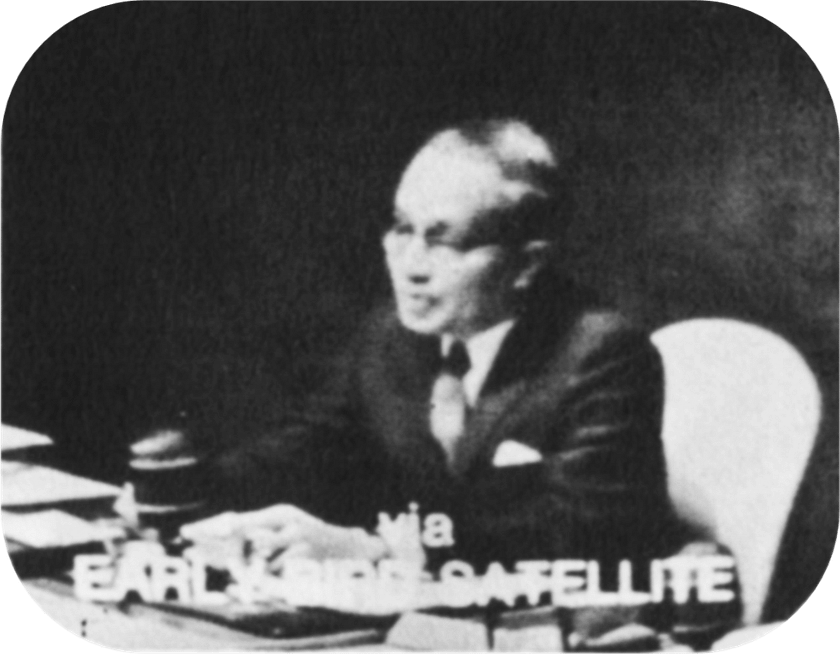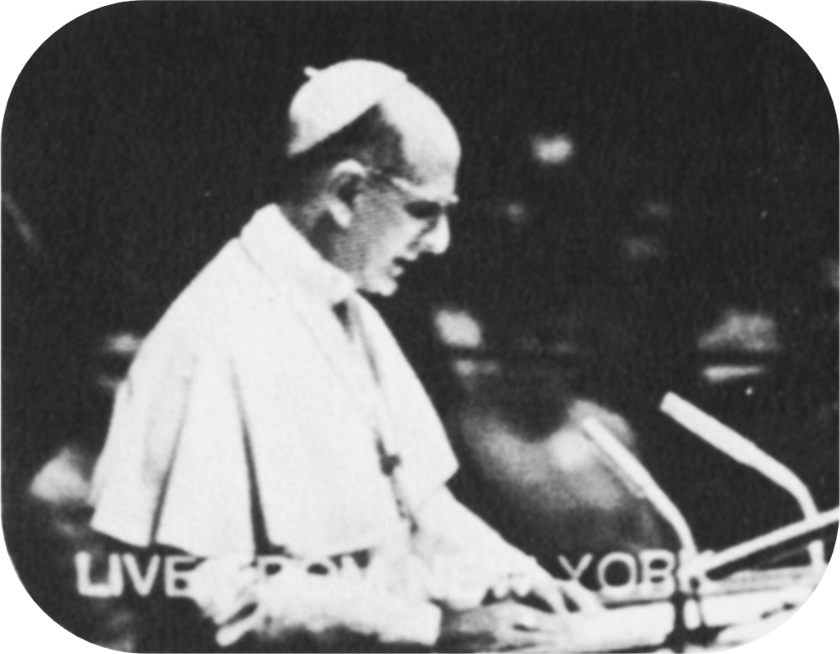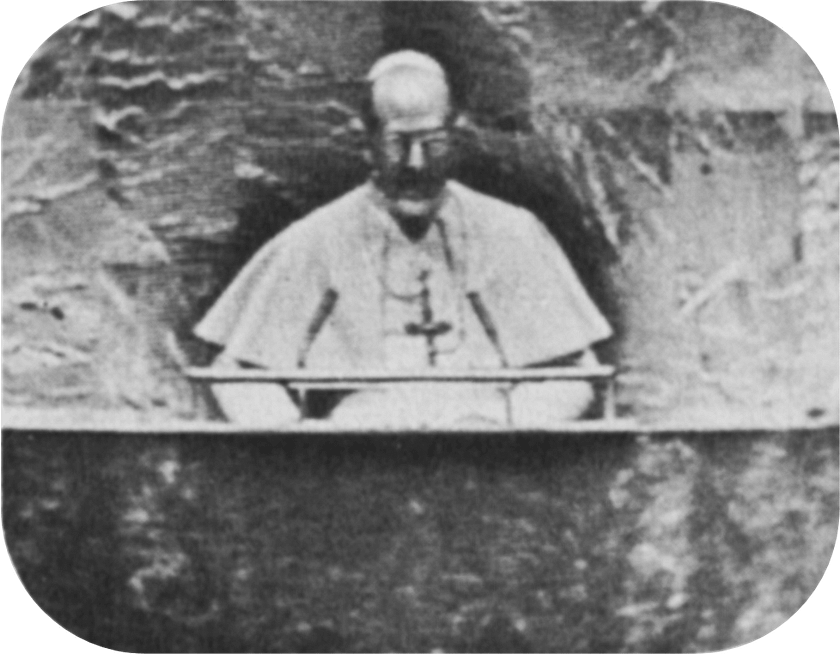To Richard’s deep disappointment his doctors told him he was too ill to fly to Japan in August with other members of the team for Panorama’s 430th edition. Most of the programme came from Nagasaki, just twenty years after the atomic bomb explosion which had ended World War II. Richard had to stay in the studio. He announced the date of Panorama’s return after the summer break under its new editor Jeremy Isaacs and added, as some thought modestly, ‘I hope to be in attendance’. He was expressing a real and far from certain hope. Meanwhile it had been announced that Pope Paul VI would visit the United Nations on Monday 4 October 1965. The first visit of a Pope to American shores was a great television occasion, both for Eurovision and for Panorama that Monday evening. Richard Dimbleby undertook what turned out to be his last journey abroad, and his last great broadcasting event. Again Richard Francis was the Panorama producer with him:
Richard arrived in the BBC New York office late on Friday 1 October. Although it was after 11 p.m. on his time-scale he immediately set about the task of gathering information. Which were the best books on this and that, who was the best man to talk to about the Catholic hierarchy in the States, how accurately was the Pope’s schedule known?
Next day, the Saturday, he attended the briefings held by the UN television unit and CBS. They, with Italian Television, were co-ordinating the programme for all the European networks. Eurovision of course took a common picture sent over the Early Bird satellite. On this occasion the rival American networks also took a common picture. They forsook competition in favour of pooling their resources to get the best coverage of the event. Significantly, at these briefings, the American producers could never quite place Richard among the other commentators. One felt perhaps they would have been happier if he had chaired the meeting. Their solution was to refer all conclusions to him before finalising, ‘How d’you reckon that’s gonna make out, Dick?’
Richard had not been feeling well since his arrival. ‘Something I’ve eaten’ he dismissed it, although he was running a high temperature. Nevertheless, on the Saturday evening he went to two parties. The first was with Peter Woods, former BBC colleague and now ITN’s correspondent in New York. He was doing Independent Television’s commentary on the Monday. Then on to Eddi Ploman, who was running the United Nations coverage. By now he could not eat a thing, but he was still very much the life and centre of the party.
At 10 o’clock on Sunday morning a large black open car drew up outside the Algonquin Hotel in West 44th Street. It was a sunny, though fresh, autumn morning, but Richard insisted that the hood remain down for the drive round the Pope’s route. He wanted to see as much detail as possible.
Ed Stutley, the 20-stone coloured driver, made his living by driving and showing people round Manhattan. Up the long Third Avenue into Harlem he was pointing out the very blocks occupied by Italians, Puerto Ricans, Spanish and Negroes in the polyglot community. Richard made careful notes. But later on, coming back through Central Park, Richard took up the story. ‘That’s the open-air restaurant where… ‘on the next corner is Carnegie Hall…’, ‘there’s Tiffany’s, where His Holiness is not expected for breakfast…’. It was an entertainment in itself.
The Pope in New York
The great day was not without incident. After the 25-mile drive to St Patrick’s Cathedral in Fifth Avenue, the Pope retired to Cardinal Spellman’s residence to rest before meeting President Johnson. Meanwhile BBC-1 slipped in the transmission of Blue Peter. On returning to New York viewers were just in time to see the Pope emerge from the residence. The timing was perfect, it seemed as if he had been cued.
Now Richard began the build-up to the historic moment. ‘This will be the first time a Pope has met a President in the United States…’ ‘All over Europe and particularly in Italy millions of people are watching and waiting for this, one of the highlights of the day….’ The Pope entered the lift at the Waldorf Astoria; on the top floor President Johnson was known to be waiting. Imagine the let-down when there appeared on the screen not the President but an American television commentator. Quickly Richard explained, ‘that is of course our NBC colleague, Ray Scherer…’. Thinking it was a temporary switching error, he flannelled. Not at all. Unknown to us, there had been a last-minute change of plan. The President would see the Pope in private first, the cameras would be let in later. It took some time to establish even that. The Eurovision control room was bedlam. Limply the several European commentators had to round off their commentaries and return viewers to their studios. One of the Italian producers turned to us, ‘Richard was able to make it sound like nothing happened, yes?’
The Pope at the United Nations
Half an hour before he was due to introduce Panorama from the UN, Richard was already cooped up in the interpreter’s box he was using for his commentary. Scarcely larger than a telephone kiosk, it overlooked not the General Assembly but the Trusteeship Council Chamber. So for the Pope’s Address he would have to rely on his monitor. He was checking over his homework when the British party, Lord Caradon, Lord Chalfont and the Foreign Secretary, Michael Stewart, passed by. Lord Caradon stopped, ‘Richard, how nice to see you. What are you doing here? Wouldn’t you rather come and work in our room nearby?’ Richard declined, he wouldn’t leave his post at that stage.
By the time the Pope had finished speaking, and we were off the air, it was late evening in London. But to us it was still only afternoon. Richard felt flat. ‘What about a really good dinner tonight, Sardi’s or somewhere?’ we suggested. No, he couldn’t face it, he was still off his food. ‘What I’d really like to do,’ he confessed, ‘is to see Hello Dolly. It’s the one show I’ve missed.’
Although it had been running on Broadway for nearly two years, ‘Dolly’ was still sold out for months ahead. At two hours’ notice it looked impossible. Sue Goldman of the BBC New York office rang the theatre. ‘Any chance of two really good seats for tonight?’ ‘For tonight! You’re kidding…. Anyway, who are they for?’ ‘Richard Dimbleby.’ ‘Mr Dimbleby? Well now, Mr Dimbleby we can accommodate.’ For a couple of hours he really enjoyed himself.

